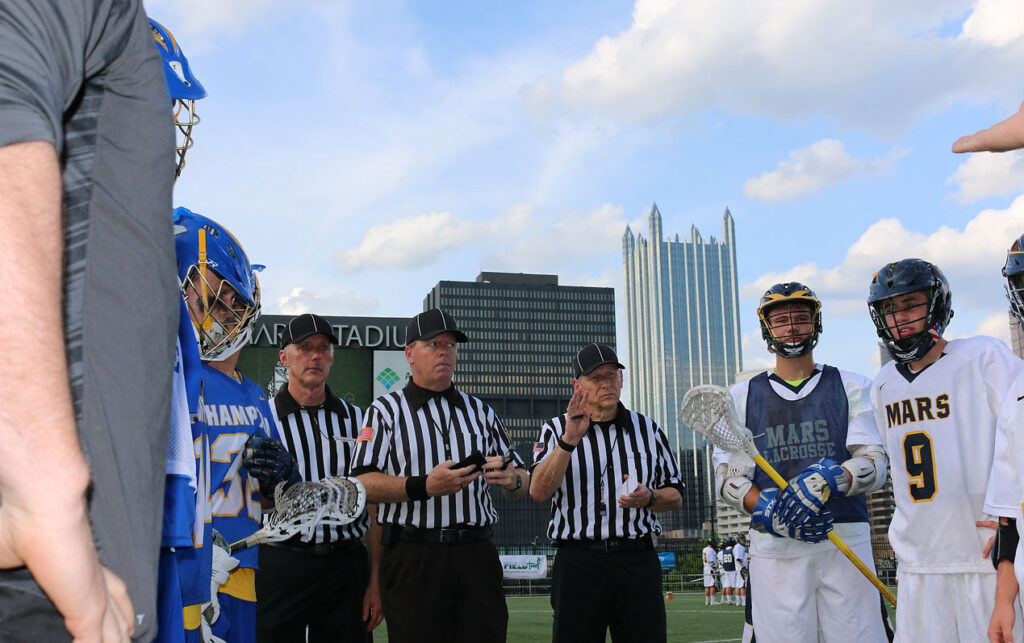Allegnehy Lacrosse Officials Association
In Memoriam: Charles R. “Chuck” Ruslavage
The Allegheny Lacrosse Officials Association is saddened to share the passing of our Chapter President, Charles R. “Chuck” Ruslavage. Chuck passed away on January 10, 2026, after a courageous battle with cancer.
Chuck devoted years of service to officiating and to the communities he supported, including our lacrosse family, and he will be greatly missed.
Full obituary and service details

Supporting the Growth of Lacrosse Through Quality Officiating
Training & Certification
We provide comprehensive training programs for new and experienced officials, ensuring high standards in officiating.
Consistency & Professionalism
Our officials are trained to uphold the highest standards of fairness, accuracy, and professionalism in every game.
Rules & Regulations Updates
We stay up-to-date with NFHS and USA Lacrosse rule changes, ensuring officials are always prepared for the latest guidelines.
Mentorship & Development
New officials receive guidance from experienced mentors, helping them build confidence and improve their skills on the field.
Community Engagement
We actively participate in the lacrosse community, working with leagues, coaches, and players to foster growth and sportsmanship.
Fair Play & Sportsmanship
ALOA officials uphold the integrity of the game by ensuring fair, unbiased, and professional officiating at all levels.
Dedicated to Training, Supporting, and Developing Lacrosse Officials in Our Community
Become a Certified Official
- Train with experienced officials.
- Gain certification to officiate youth & high school games.
- Support the growth of lacrosse in our community.


Stay Updated on Lacrosse Officiating
- Access the latest rule changes & updates.
- Get tips from veteran referees.
- Join our community of dedicated officials.